Accelerating Super-Resolution and Visual Task Analysis in Medical Images.
Zamzmi G, Rajaraman S, Antani SK
Appl. Sci. 2020, 10, 4282.
Abstract:
Medical images are acquired at different resolutions based on clinical goals or available technology. In general, however, high-resolution images with fine structural details are preferred for visual task analysis. Recognizing this significance, several deep learning networks have been proposed to enhance medical images for reliable automated interpretation. These deep networks are often computationally complex and require a massive number of parameters, which restrict them to highly capable computing platforms with large memory banks. In this paper, we propose an efficient deep learning approach, called Hydra, which simultaneously reduces computational complexity and improves performance. The Hydra consists of a trunk and several computing heads. The trunk is a super-resolution model that learns the mapping from low-resolution to high-resolution images. It has a simple architecture that is trained using multiple scales at once to minimize a proposed learning-loss function. We also propose to append multiple task-specific heads to the trained Hydra trunkforsimultaneouslearningofmultiplevisualtasksinmedicalimages. TheHydraisevaluatedon publicly available chest X-ray image collections to perform image enhancement, lung segmentation, and abnormality classification. Our experimental results support our claims and demonstrate that the proposed approach can improve the performance of super-resolution and visual task analysis in medical images at a remarkably reduced computational cost.
Zamzmi G, Rajaraman S, Antani SK. Accelerating Super-Resolution and Visual Task Analysis in Medical Images.
Appl. Sci. 2020, 10, 4282.


